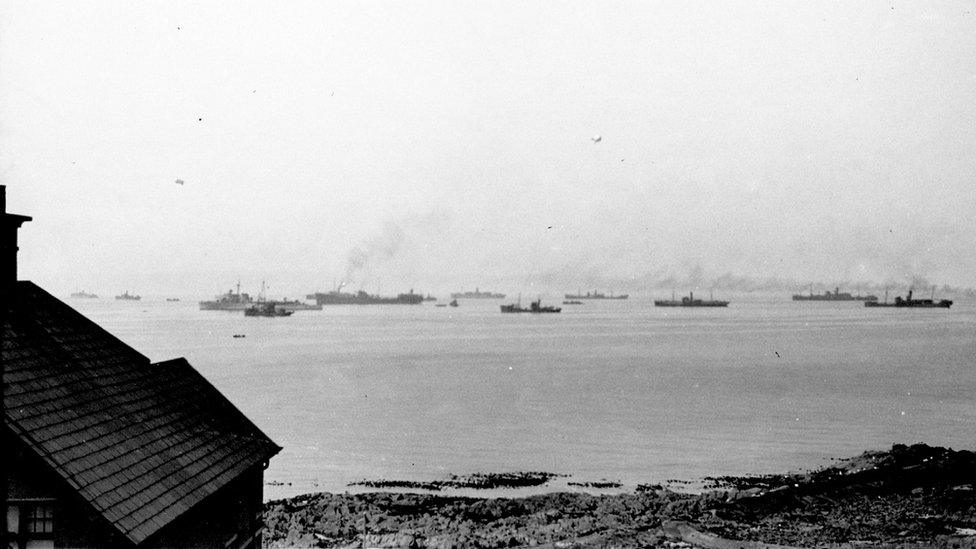WW2 veteran Andrew Charles 'never talked openly about the war'
- Published
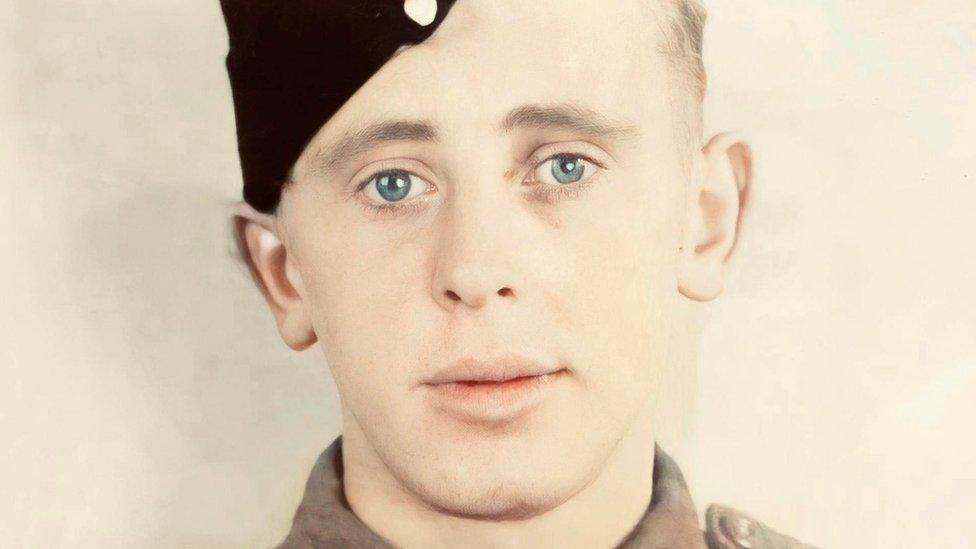
Andrew Charles was awarded medals for his bravery during the war
Landing by sea on the beaches of Normandy in June 1944, Andrew Charles fought his way through occupied enemy territory with the Royal Ulster Rifles.
One of Northern Ireland's last surviving D-Day veterans, he was awarded the Legion d'Honneur medal by the French government for his heroics.
The Legion d'Honneur is the highest French order of merit.
Mr Charles died at the age of 98 in Antrim Area Hospital last weekend.
He was also awarded the Military Medal for helping to take out heavy German artillery which was pinning back his platoon, B Company.
In an exposed position and under heavy attack, he held his nerve and returned steady fire, enabling the guns to be captured and causing their crew to retreat.
He was presented with the Military Medal in the Netherlands in August 1944 by Field Marshal Bernard Montgomery.
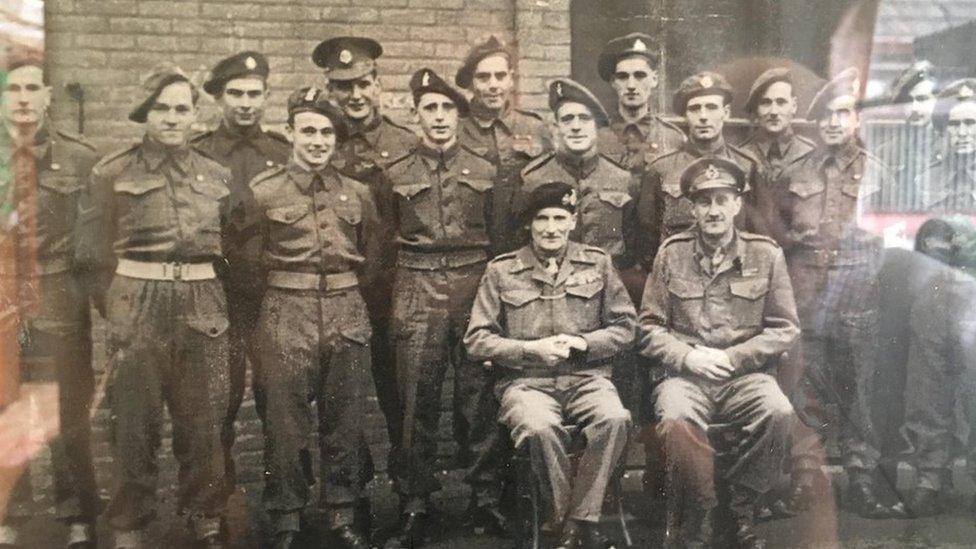
Andrew Charles (second row, third from left) with Field Marshal Montgomery
Despite having such dramatic stories to tell, Mr Charles' great nephew Dr Andrew Charles said he was a "humble individual".
"He never spoke openly about the war," Dr Charles told BBC News NI.
"His own son didn't even know he had fought in it until about 20 years ago and he never spoke about his medals."
Mr Charles, who lived with his wife Cora in Magherafelt after the war, was one of 40 World War Two veterans awarded the Legion d'Honneur in 2016.
He joined the Ulster Special Constabulary when he was a 15-year-old schoolboy before joining the Royal Inniskilling Fusiliers aged 17.
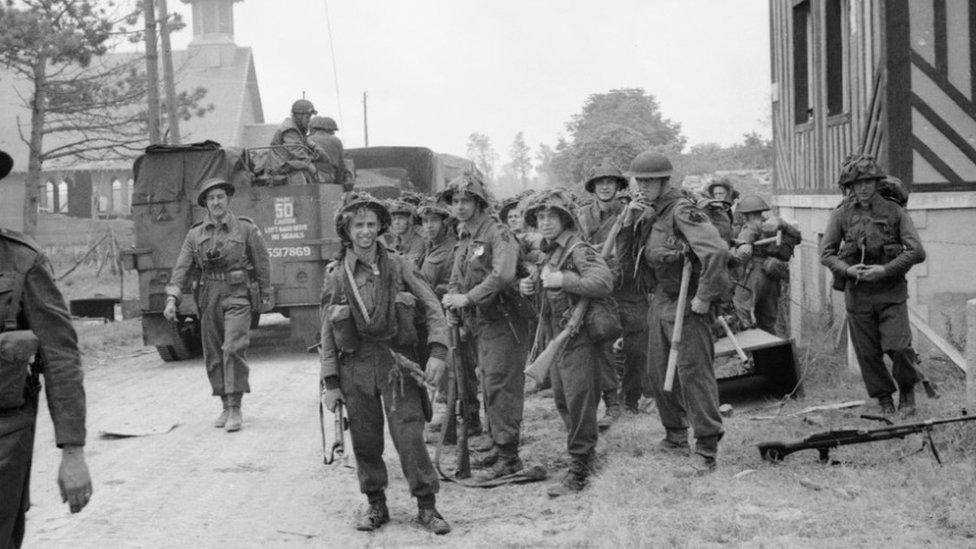
Andrew Charles was a gunner with the Royal Ulster Rifles
His proficiency with a rifle - a skill he practised with his father as a child - eventually led to his selection as a gunner for the Royal Ulster Rifles.
While in the Home Guard, he was able to develop his rifle skills, which were to set him up for the role he played in the Army.
A skilled carpenter, later in life he built a museum-like display in his home to house his collection of wartime memorabilia.
"There are medals, newspaper clippings, German postcards he had found left behind by retreating soldiers," Dr Charles said.
"There's a real treasure chest on display."
One of his most-prized possessions was the framed colours of the Royal Ulster Rifles.
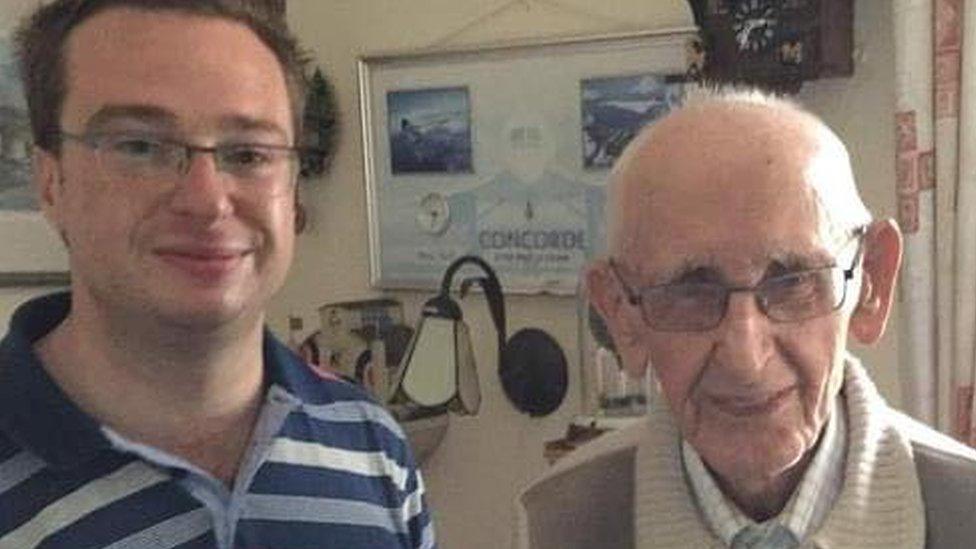
Andrew Charles with his great nephew, who is also Andrew Charles
Two months after he was awarded the Military Medal and as his regiment continued to advance through Europe, Mr Charles was seriously injured at the Dutch-German border.
"He thought he would lose his leg," Dr Charles said.
He was flown to England where he was treated in a military hospital before returning to Northern Ireland.
His leg was saved but his wounds would be with him for the rest of his life - his war was over.
"He never complained about his own health but was always asking about everyone else," Dr Charles said.
"He was a devoted father and very much a family man, always very kind and caring.
"He'll be so fondly remembered by his family and by the wider community - he will really be missed."
His funeral was held at St Comgall's Church of Ireland, Desertmartin, County Londonderry, on Tuesday, the town where he was born and raised.
Related topics
- Published6 June 2021
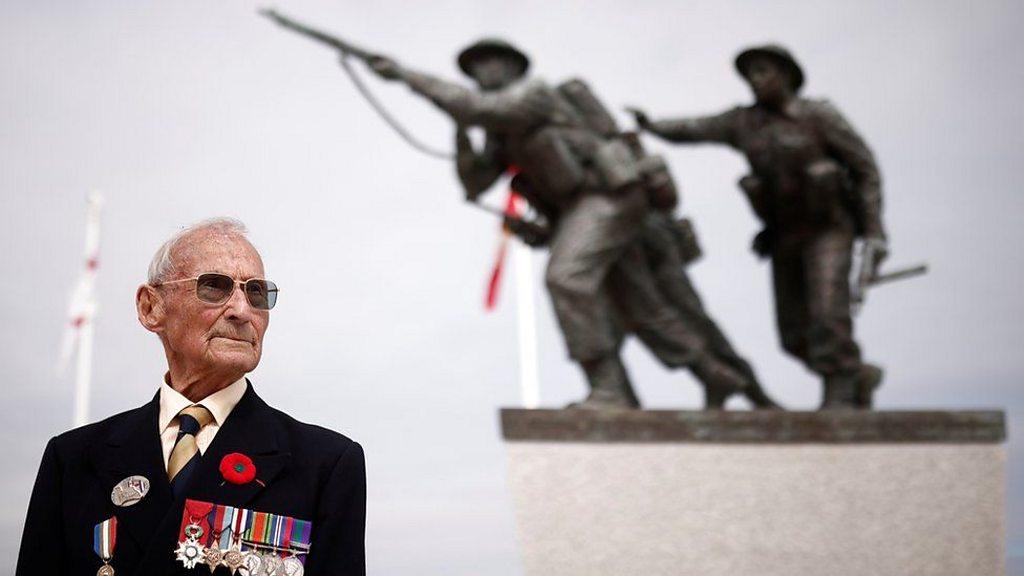
- Published6 June 2019
